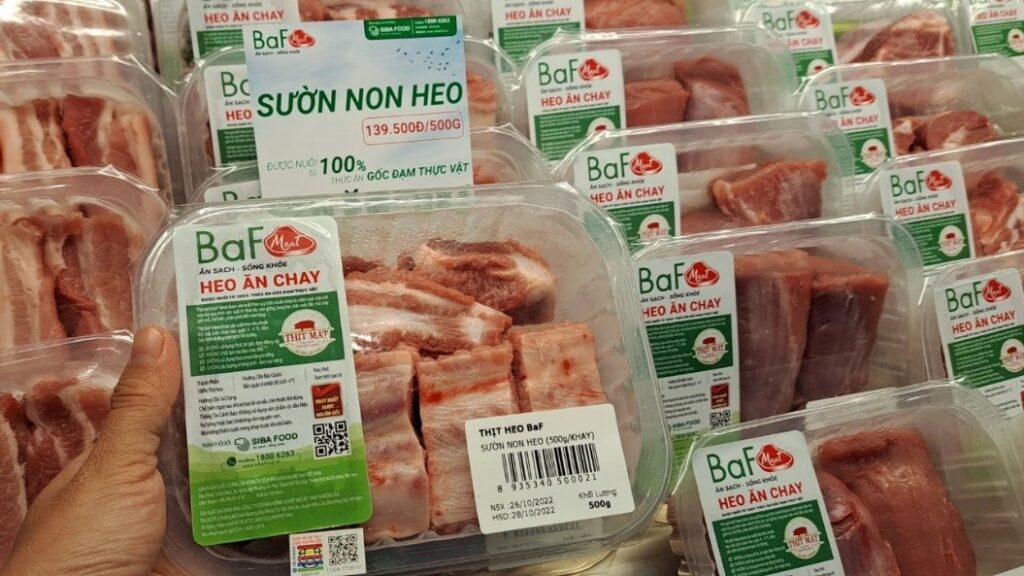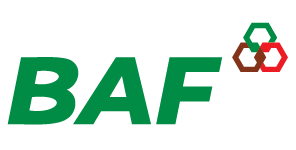Mr. Truong Sy Ba, Chairman of the Board of Directors of BAF Vietnam Agriculture Joint Stock Company (HOSE: BAF), believes that African Swine Fever (ASF) poses a significant challenge to Vietnam’s livestock industry but also represents a favorable opportunity for well-invested and well-controlled enterprises.
Disease Challenge Puts Smallholders in Deep Trouble
In assessing the overall situation, Chairman Truong Sy Ba noted that the total pig population in Vietnam is large, around 25-26 million pigs, supplying approximately 45 million pigs to the market each year. Meanwhile, Vietnamese people consume up to 70% of their dietary protein from pork.
African Swine Fever (ASF) has been present in Vietnam since 2019, according to Mr. Ba, posing a significant challenge, especially for small-scale livestock farmers. This observation is based on the reality that small-scale farming groups’ biosecurity and disease control conditions are weaker, leading to substantial negative impacts and even being perceived as “deep trouble.”
Nevertheless, opportunities still exist within adversity, particularly for the industrial livestock farming sector amidst the challenges.

Chairman of the “Vegetarian Pig” brand shares that, before the ASF outbreak, small-scale livestock accounted for the majority of the market, up to 80% of Vietnam’s total pig population. However, when the disease emerged, the market share of small-scale farming decreased to below 60%. This presents an opportunity for the industrial pig farming sector, which receives more systematic investment and better management control.
“Nobody wants the ASF outbreak, but when it happens, it is both a significant challenge for Vietnam’s livestock industry and an opportunity for businesses that have comprehensive and systematic investments in farms with good biosecurity management,” quotes the Chairman of BAF.
“In the next 10 years, small-scale live stock will continue to decrease, from 30% to 40%. This is a very fertile ground, an opportunity for industrial pig farming to develop and secure consumer food security,” said by Mr.Truong Sy Ba.
He believes the Vietnamese livestock industry must acknowledge and “coexist with the disease.” According to him, there is still no perfect vaccine – a type that has been confirmed and proven effective for pig herds – even though ASF has been present worldwide for over 100 years. Coexistence is necessary until a vaccine is developed to solve the problem.
“From small-scale to industrial pig farming, everyone must focus on managing disease safety, especially biosecurity, to protect their pig herds. It is due to the spirit of ‘coexistence’ that everyone is trying to control the situation.”
“However, this process is more controlled in industrial pig farming, while small-scale farming is heavily affected and not well-controlled. In the future, small-scale farming will gradually decrease, making room for industrial farming,” Mr. Sy Ba concludes.

In addition, the disease situation has become more complex since 2019 due to unpredictable strains of the virus. In this context, the industrial farming group will have an additional advantage due to higher control standards.
“Some pigs do not show disease symptoms, but they die within 3-5 days. It’s very difficult to detect and gets more complicated over time. The awareness of biosecurity among the public and businesses has increased, so the outbreak has reduced compared to 2019. However, it cannot be said that the outbreak has been fully controlled, and there are still many hidden risks.”
“I believe that modern farming is more affected by climate change because of investments in cool and enclosed pens, with temperature control systems through fans, ensuring a stable microclimate for the pig herd,” said Mr. Ba.
Is the price pressure from imported and smuggled pigs negligible?
Diseases cause price pressure on the livestock industry as there is an influx of disease-avoiding pigs from farmers into the market. In fact, the price of live pigs has sharply declined over the past few months from the peak above 60,000 VND/kg recorded in July 2023.
In addition to pressure from the disease, the influx of smuggled pigs through border gates into Vietnam is believed to be a reason for the decline in the domestic pig price. However, Mr. Ba thinks that this is not the main reason.
“The root cause is deep, stemming from the overall decrease in economic demand. Another reason is the supply, mainly still from domestic sources. This source has increased significantly as farmers sell pigs due to the disease. Although smuggled pigs have an impact, they are not the main cause. Recently, the Prime Minister issued a directive to tighten control on this issue at border gates. I think this situation will improve in the future,” according to Mr. Ba.

A number of smuggled pigs were caught in An Giang – Photo: Can Tho Newspaper
Similarly, Mr. Ba has a relatively positive view on the impact of imported frozen pork. This source accounts for about 2.1% of the total meat production in the country for the first ten months of 2023, according to data from the General Department of Customs. The reason is that the consumption habits of the Vietnamese people still prefer “hot meat, fresh meat,” so this segment is not affected.
Moreover, the 2% proportion is insufficient to regulate market prices; it would have to be around 50% – a level that Chairman Ba is confident Vietnam will not reach regarding pork imports.
“This source (imported meat) does not have much impact. The nature of imported meat accounts for only about 2%, mainly frozen meat. It is only suitable for the market segments of collective kitchens, restaurants, hotels, and tourist areas. Our people still go to the market to buy hot and fresh meat, as frozen meat is not as tasty,” he states.

“However, this market segment cannot be hindered when integrating internationally, and we still have to accept it. Because foreign frozen meat is very cheap, when it comes to Vietnam, it also affects the collective kitchen market (Horeca market). As for the hot meat market, in my opinion, it will not be affected,” Mr. Ba said.
Supply is not too abundant; pig price may increase to 55,000 VND/kg after Tet
Regarding the supply and price of pork in the short term, Mr. Ba said that with a total pig herd of 27 million in the country (producing 45-50 million pork/year on the market) along with other foods, it is Ensuring supply during the upcoming Tet holidays, when consumer demand increases.
However, he believes that pig prices will increase at the end of the year because risks from ASF make the supply less abundant.
However, he believes that pig prices will increase at the end of the year because risks from ASF make the supply less abundant.
“The total population statistics in Vietnam are not clear, but fully meet the needs of Tet when consumption increases. However, there are still challenges and risks from ASF reducing supply. Meanwhile, demand for pigs during Tet will increase by 10% – 20%. Therefore, although the supply is sufficient, it is not too abundant, which will cause pork prices to increase at the end of the year,” Mr. Ba shared.
As for pork prices, BAF Chairman said the current price is at the bottom. However, the impact on industrial livestock farming is actually not too great.
“This price range is the bottom, it must be understood that if this level is breached, it will be a loss. For small-scale livestock farming, which depends entirely on the purchase of breeds and feed, if the biosecurity of herd protection is not good, it is very risky. This price for them is approaching the cost price; even for farmers who do not control their herds well, they are at a loss.”
“The story of industrial pig farming is different. The price of input materials accounts for 65%-70% of the animal feed of this group. Recently, the price of raw materials has decreased by 15% – 30%, thereby pulling the cost of industrial livestock farming down.”
“At BAF, the cost price is only about 40,000 VND/kg. At this price, it will be profitable if the herd is well-protected and free from ASF or other diseases. BAF is the best disease control company in the Vietnamese livestock industry, the disease rate in the total herd is very small and insignificant. In general, livestock enterprises with good control.
“We also hope prices will continue to increase at the end of the year, and after the Lunar New Year. In my opinion, the price of live pigs during Tet will increase from 48,000 – 51,000 VND/kg to 53,000 – 55,000 VND/kg after Tet.”



